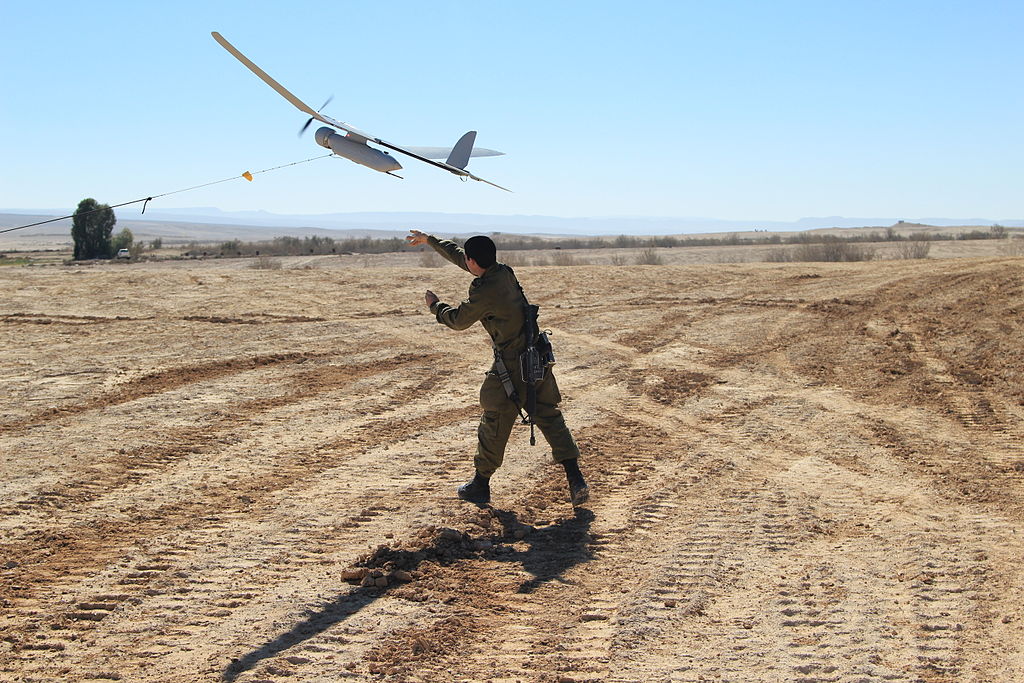
THE DRONE WAR SPREADS
Drone warfare—cheap, easy and deadly—is likely to write the next chapter of the Arab-Israeli conflict. Pulitzer Center grantee Yochi Dreazen, in a feature article for The New Republic, notes that Israel already boasts one of the most extensive and sophisticated drone fleets in the world. Meanwhile, its most persistent adversary, Hezbollah, is rapidly building up a drone fleet of its own, thanks entirely to its principal patron, Iran.
Israel routinely uses drone strikes to settle scores with militants in Gaza, but was deeply unsettled itself a year and a half ago when a Hezbollah drone flew to within 20 miles of Israel's heavily guarded nuclear facility at Dimona.
"What makes drone-on-drone warfare so destabilizing is that the rules of engagement still remain to be written," says Yochi. "Should a flight by an unarmed aircraft be considered a mere provocation? Or a breach demanding retaliation—perhaps in the form of the limited airstrikes that Israel orders after rocket attacks? What if a drone that crashes on its own before reaching its intended destination is then found to be armed?"
THE REAL COST OF CHEAP LABOR
In a series of videos and articles for The Washington Post, Pulitzer Center grantee Anup Kaphle documents the human cost of low skill labor migration from Nepal to the wealthy nations in the Persian Gulf.
"This agricultural country used to export herbs and tea leaves. Now it exports people. At least 2.2 million Nepalis — nearly 10 percent of the population — are working abroad," writes Anup. "And that doesn't include Nepalis who leave to work illegally."
More than 2,000 men and women are leaving the country every day, says Anup. "But in recent years, Nepalis have become increasingly alarmed by the price paid by thousands of migrants. Some suffer depression as they leave tiny rural villages and travel alone to foreign cities where they don't speak the language. Others face abuse ranging from long hours to beatings. Each year, hundreds come back in plywood coffins."
A PRESIDENTIAL ELECTION IN AFGHANISTAN
A former Johns Hopkins professor and World Bank official named Ashraf Ghani has emerged as a frontrunner to succeed Hamid Karzai in Afghanistan's presidential election later this week.
Ghani presents an impressive resume, but as Pulitzer Center grantee Jeff Stern writes in a profile for The New Republic, "Whoever's elected next month will have to strike a delicate balance between allegiance to, and independence from, the international community that Ghani knows so well—especially America. As the U.S.-led combat mission ends, keeping America involved without showing weakness at home is going to be a difficult balance, especially for Ashraf Ghani."
Jeff says that Ghani has been unafraid to embrace his ties to the West, but as a presidential candidate, he has also baffled some of his supporters in the West by his choice of running mate: General Abdel Rashid Dostum, a warlord who has been responsible for massacres of prisoners, accused repeatedly of using mass rape as a weapon of war, and has a long list of other war crimes attached to his name. Ghani shrugs off the criticism: "General Dostum is not coming with a militia to take over Kabul. He's coming in a suit. To be vice president. Based on a democratic election. And that is the profound change."





